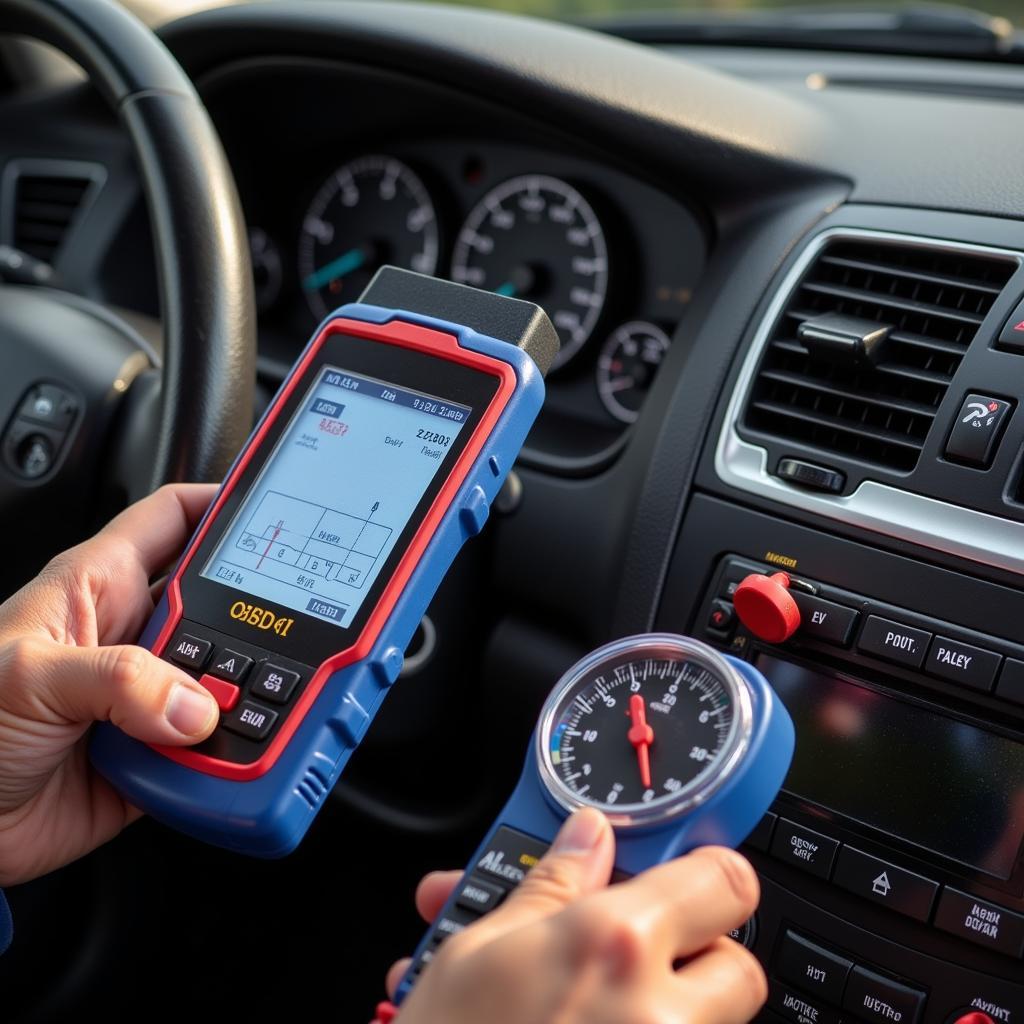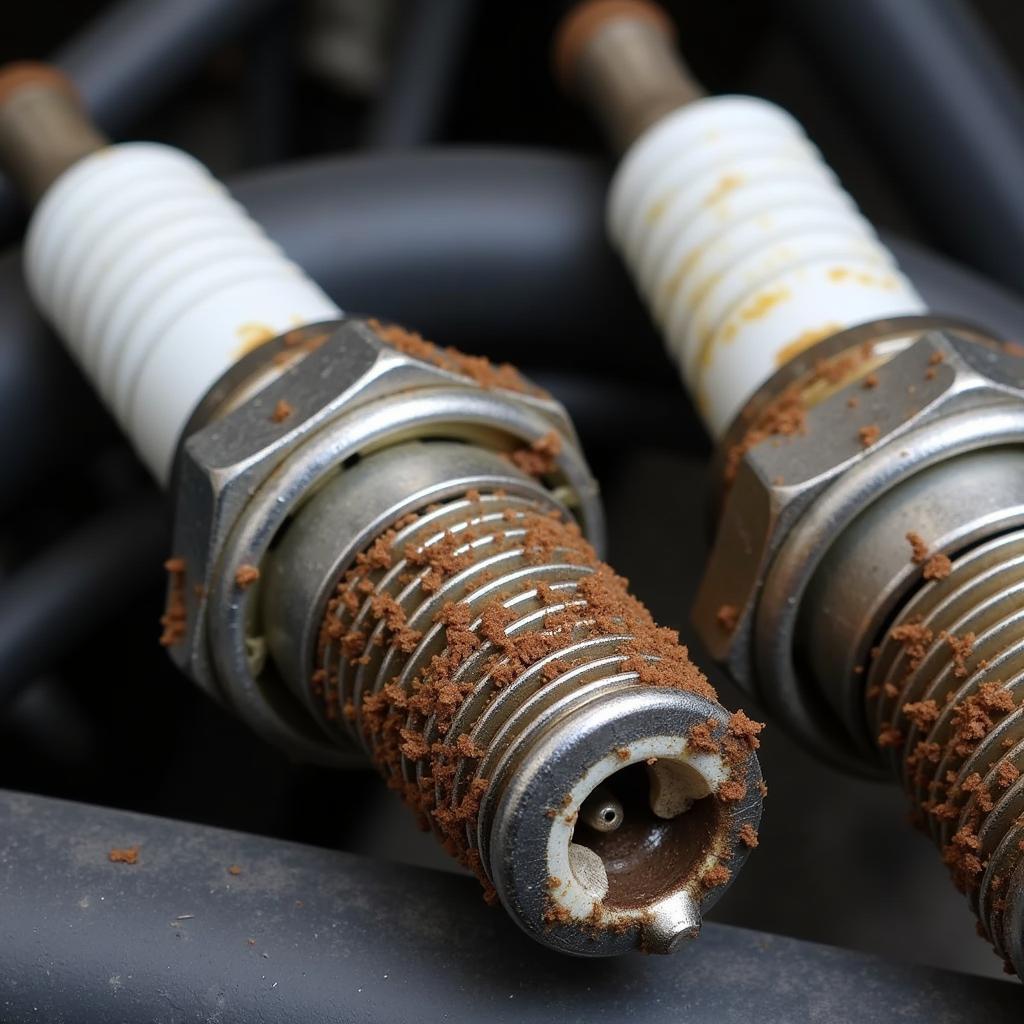If your car has problems accelerating, it can be a frustrating and potentially dangerous situation. This article will guide you through the common causes of slow acceleration and provide practical solutions for troubleshooting and repair, whether you’re a car owner, a mechanic, or an automotive technician. We’ll cover everything from simple checks you can do yourself to more complex issues that may require professional help. Let’s get your car back up to speed!
 Car Acceleration Problems: Diagnostic Tools
Car Acceleration Problems: Diagnostic Tools
When your car hesitates or struggles to accelerate, it could be due to several reasons. One common culprit is a clogged air filter. A restricted airflow starves the engine of oxygen, leading to poor performance. Another potential issue is a faulty fuel pump or a clogged fuel filter. These components are crucial for delivering the right amount of fuel to the engine. Without sufficient fuel, the car won’t accelerate properly. If you’re experiencing these issues, check out resources like [symptoms of car automatic transmission problems](https://autotippro.com/symptoms-of-car-automatic transmission-problems/).
Identifying the Root Cause: Why My Car Has Problems Accelerating
Pinpointing the exact reason why your car has problems accelerating can involve checking various components. Spark plugs play a vital role in igniting the air-fuel mixture in the cylinders. Worn-out or faulty spark plugs can lead to misfires and reduced acceleration. Similarly, a failing ignition coil can disrupt the spark delivery, resulting in poor engine performance. Transmission issues, particularly in automatic transmissions, can also manifest as slow acceleration. For insights on transmission-related problems, see car transmission problems automatic.
 Faulty Spark Plugs Causing Acceleration Issues
Faulty Spark Plugs Causing Acceleration Issues
Common Culprits Behind Slow Acceleration
Beyond the previously mentioned issues, several other factors can contribute to acceleration problems. A malfunctioning mass airflow sensor (MAF) can provide incorrect readings to the engine control unit (ECU), leading to an improper air-fuel mixture and sluggish acceleration. A clogged catalytic converter restricts exhaust flow, hindering engine performance. Vacuum leaks can also disrupt the engine’s air intake system, causing various performance issues, including slow acceleration. If you suspect transmission issues, exploring resources on 94 town car automatic transmission problems might be beneficial.
“A thorough diagnostic check is essential to accurately identify the cause of acceleration problems,” advises John Miller, a certified automotive technician with over 20 years of experience. “Don’t just replace parts randomly. A proper diagnosis saves you time and money in the long run.”
Troubleshooting Acceleration Problems: A Step-by-Step Guide
Start by checking the easiest and most accessible components. Inspect the air filter for dirt and debris and replace it if necessary. Next, check the fuel filter and fuel pump for any signs of blockage or malfunction. If you’re comfortable working with basic car maintenance, you can try cleaning or replacing these parts yourself. For those facing transmission-related challenges in specific car models, resources like problems with automatic transmission cars in india could provide valuable information.
When to Seek Professional Help
If the basic checks don’t resolve the issue, it’s time to seek professional help. A qualified mechanic can use diagnostic tools to pinpoint the problem accurately. They can check for error codes stored in the car’s computer, analyze sensor readings, and perform more advanced tests to diagnose the root cause of the acceleration problem. For a deeper understanding of diagnosing automatic transmission issues, consider checking out car diagnose automatic transmission problems.
“Remember, safety first,” reminds Susan Davis, a senior automotive engineer. “If you’re unsure about any repair or diagnostic procedure, it’s always best to consult a professional.”
Conclusion: Getting Your Car Back on Track
Addressing acceleration problems in your car requires a systematic approach. From checking simple components like the air filter to diagnosing more complex issues like transmission problems, understanding the potential causes and solutions is crucial for getting your car back on track. Don’t hesitate to contact AutoTipPro at +1 (641) 206-8880 or visit our office at 500 N St Mary’s St, San Antonio, TX 78205, United States for expert assistance with your car’s acceleration issues. We’re here to help you get back on the road with confidence.




Leave a Reply